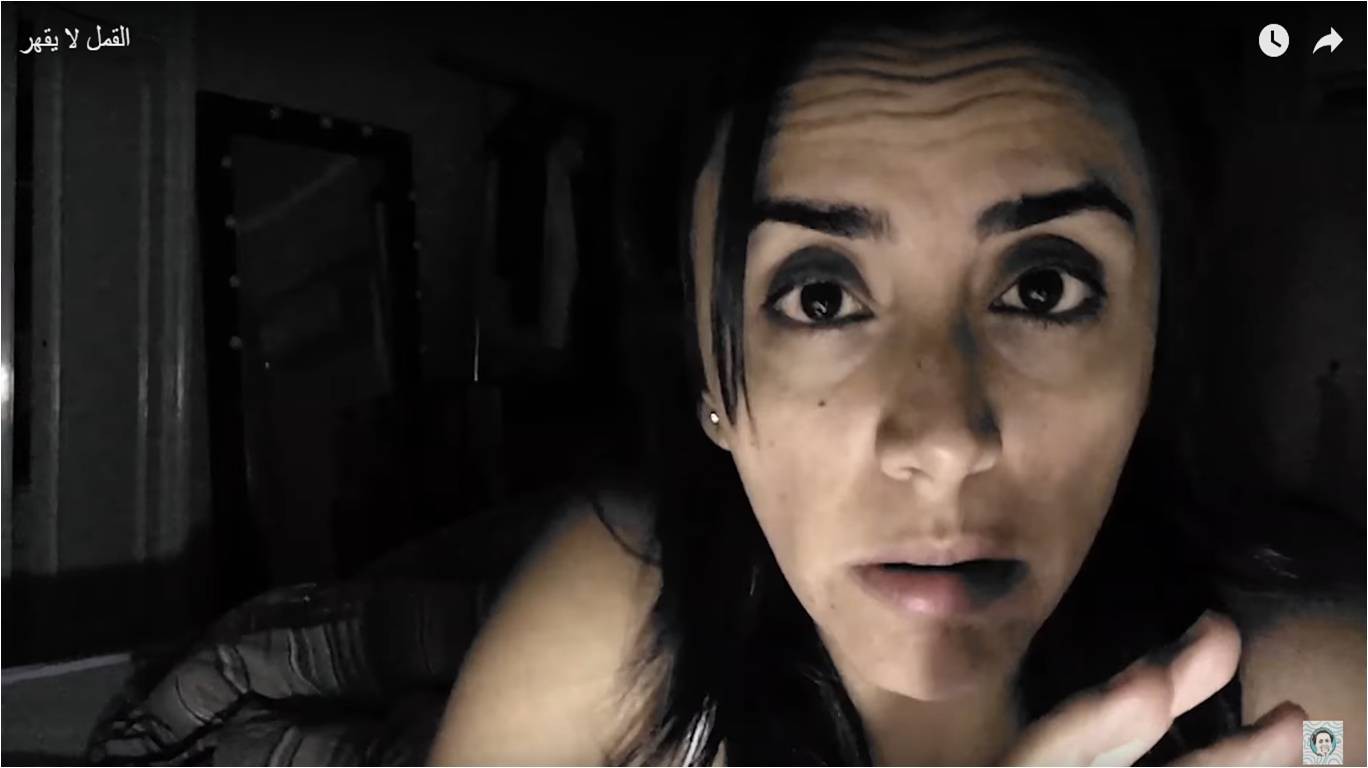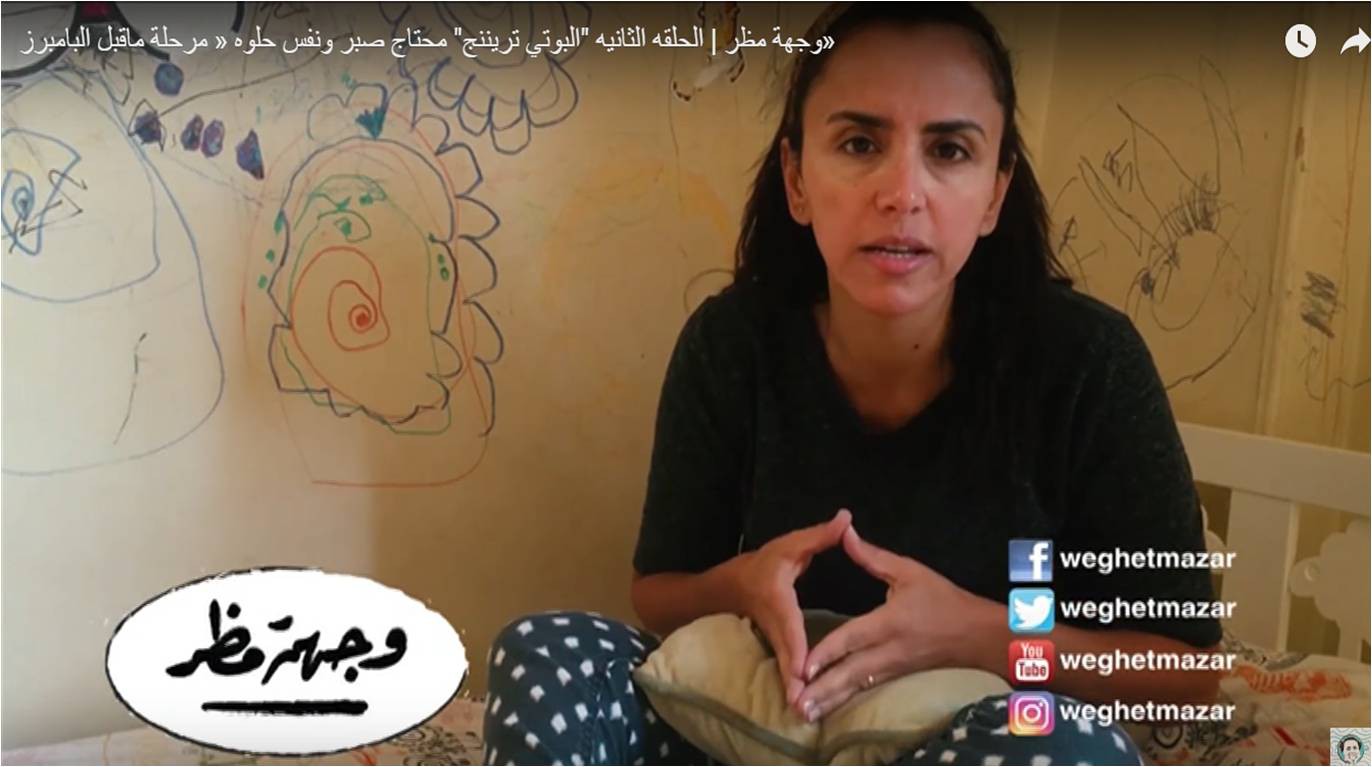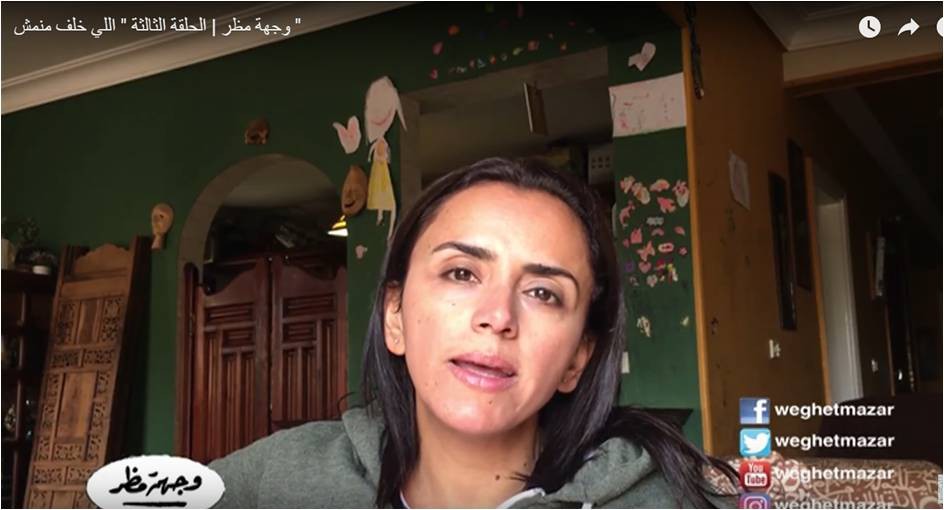Ever since the introduction of reality TV shows, we’ve been wondering how ‘real’ these shows actually are. With makeup teams in the background and staged conversations in the foreground, it has become difficult to believe that any of it is very real. However, “Weghet Mazar” (A mother’s point of view) is a show like no other, reporting the daily struggles of motherhood straight from the scene. Long before she became a mother, Founder and Actress Ola Roshdy, wanted to do a kids’ program, but every time she tried to pitch ideas she was told that the market didn’t need those kinds of programs. Despite this, when she became a mother, Roshdy began creating short Instagram videos with her daughter for fun, laying the foundations for her future show.
it is very real. However, “Weghet Mazar” (A mother’s point of view) is a show like no other, reporting the daily struggles of motherhood straight from the scene. Long before she became a mother, Founder and Actress Ola Roshdy, wanted to do a kids’ program, but every time she tried to pitch ideas she was told that the market didn’t need those kinds of programs. Despite this, when she became a mother, Roshdy began creating short Instagram videos with her daughter for fun, laying the foundations for her future show.
At first she thought big; she thought of segments, a studio with décor and a couch with mothers sharing their experiences. But Roshdy realized that she is no presenter;
she is an actress seeking to entertain and wanting to reach all the mothers that don’t even have time to watch TV. So she decided to do it online. After realizing that the goal was to be real and simple; the professional camera, the make-up and proper lighting were abandoned and filming began in earnest on her phone. Weghet Mazar as we know it was born!
We had a little chat with the brilliant mind behind it all…
Your show’s Facebook page now has 58,458 likes even though you have only posted three episodes so far. What do you think generated this traffic?
I always thought that no one paid much attention to mothers. I’d see them on Facebook groups and social media, asking questions, sharing their problems, but no one ever seemed to answer. Maybe they didn’t want solutions; maybe all they needed was someone they could relate to, someone who made them feel that they weren’t the only ones going through this struggle.
How do you think being an actress affected the viewership of your show?
I think it was a boosting factor. Especially because most people were surprised to see an actress show up without any makeup on, as naturally as possible, and talking in the way that I did.

Was it part of the plan to show up without any makeup on, in your pajamas whilst behaving in that spontaneous manner of yours?
I felt that the more natural I was, the more I could just talk and behave normally. When I tried to brush my hair, fix myself up and sit right on a couch, it didn’t feel real. I felt more like an actress than a mother, especially because I usually improvise and have found that words come out better when they are right in context. I wanted to film every situation exactly while it happened, in the setting where it took place; at home, in the heart of every mess.
In what way do you think social media affects mothers? Do you think a lot of influencers send demanding messages, pressuring Arab mothers into always being in shape and fit?
Unfortunately, yes. Of course the exposure to demanding online messages can only affect women negatively. To combat that, someone had to step up and be real.
You have two kids, Mila and Adam, what are the most shocking things you were surprised to know after you had your first baby? And what mistakes did you do with your first baby that you tried to fix with your second?
Errm, I had no idea I wouldn’t sleep at night anymore. Dawood and I were really shocked at first. I guess I just assumed that I’d feed her and she’d sleep, no one told me that I’d wake up every 15 minutes. I didn’t know that it was a 24/7 job. When I had Gamila, I was really careful with everything I did with her, I was very much into details, I’d style her up and obsess over what she eats, but Adam, my second baby, basically wears his sister’s pajamas now. You are always more confident with your second baby.
Do you think Arab mothers face these kinds of challenges because they don’t read enough, aren’t exposed to a lot of informative content, or are reliant on their mothers?
Well I do think the challenges of motherhood are underplayed, and there aren’t any courses for the newlyweds to learn about parenthood before they actually become parents. Women are already emotional, so when they are pressured into pregnancy by their mothers, husbands or even society, they just accept it. I believe that not all women are capable of motherhood, it’s not a given, some don’t just have the capability to have someone depend on them for life. And it’s not a flaw or anything, it’s just who they are. We were born to believe that women are meant to eventually get married and have kids, and if she actually delivers a baby, they automatically ask her to have a second, so the first won’t be lonely, selfish or suffer a huge age gap between him and his sibling. It doesn’t have to be this way. It’s okay if a couple decides to never have kids, or to have kids after 10 years of marriage, the most important thing is to never victimize those children. It’s not in our culture to read or research; we just love word of mouth. I used to read a little bit, but reality is different. In books things happen on the count of 1, 2, 3, in reality things just happen spontaneously and you have to deal with them.

Asides from different raising techniques, do you think all mothers go through the same struggles?
Actually, I used to look at my friends’ kids and assume that my kids won’t be like that. I’d even frown at those mothers who couldn’t silence their kids on a plane, until it happened to me when I was on a plane back to Egypt after I had my first baby. I was in business class, business men were everywhere around me, and I was basically changing and breastfeeding Gamila. We think we’d do things differently when we have our own baby, but we all just go through the same struggles.
You highlighted in Weghet Mazar that patience is a crucial trait in motherhood, how do you work on developing that?
I just participated in this Unicef workshop about violence against kids. There were a lot of mothers and psychiatrists talking about positive parenting. We discussed physical and emotional abuse, and they showed us all those statistics that I knew we are all part of. I don’t think there is a mother out there that doesn’t burst at some point and shout at her kids. Us, Egyptians are used to yelling at anything. My sister lives abroad, she just came back with her kids, and they do behave differently. They are politer, and I guess it’s because of the environment; abroad they are just quieter. With my own kids, I try to set some ground rules, and raise them to be independent. Maybe I don’t have time to let Gamila tie her own shoes, and it’s easier for me to do it for her, but it is important to let them take the time, to be patient.
Would you say that the real issue here is that Arab kids are very dependent on their mothers, and that mothers for their part are too emotional with their kids, influencing their decision making?
Sadly yes, but it is actually the mother’s fault and not the kid’s. Mothers are generally overprotective, they always want the best things for their kids. I, myself am emotional with my kids, I try to be tough sometimes, but at the end of the day they are my kids; they are weak, they are cute and it’s easier to do what they want, to sleep with them in bed, to comfort them.

You talk about your busy mornings, prepping kids for school and your sleep-deprivation, how far do you think husbands should engage in such duties? And being the wife of the famous actor, Ahmed Dawood, do you manage to split responsibilities?
Well generally speaking, I believe Egyptian men are spoiled by their mothers, but you can always accustom them to newer habits. Regarding Dawood, I think it really gets better with time. The more he develops a stronger relationship with his kids, the more he gets involved in their lives. Maybe when Gamila, for example, was a baby, he didn’t do much, but now he sometimes takes her to practice or down to the School bus. The unfortunate thing is sometimes when he agrees to pitch in, she still clings to me.
Do you think that women prefer doing everything themselves, so they can guarantee that it’s done 100 % right?
Yes. Women should be tougher, they should just be able to leave everything and go out. They should take the risk and let the fathers deal with everything, knowing that they might not do it 100% right, but they’ll do it anyway. It’s not good for the kids to perceive their father as the man who goes to work to get money and then comes home to sit on the couch and watch TV.
What do you think of the nanny syndrome? Do you have a nanny/and why?
Yes, I have a nanny. It’s okay to have help, but I do believe anything directly related to the kids should be done by the mother. However, unfortunately some working mothers come home late, so the nanny would have to be the one that feeds, showers and puts the kids to sleep. If you are a stay-at-home mom, then I guess you shouldn’t let the nanny enjoy all the kids’ tenderness. It really affects me to be out and have the nanny put my kid to sleep. At first, I’d panic and worry that he’d get attached to her and forget me, but then I figured that no one can really take over a mother’s role if she stays in control.
Do you feel that our malls, or outing venues in Egypt are not well prepped for kids?
In Egypt if you want to go out with kids, you have to either go to clubs or any indoor places. There are some kids-friendly places, but they are very limited and expensive. You could pay 400 L.E just to get 2 kids in there. It’s harder for those who can’t afford a club, because the streets aren’t facilitated for walks or bike-riding or anything much!

We couldn’t help but notice that the wall behind you in the show’s second episode was covered up in kids’ drawings. How do you deal with that?
Oh, that happened. Actually, at first I just wanted to give my kids the space to be creative, so I told Mila she could do anything on the walls of her room. Unfortunately, she started crawling her way out, and eventually all the house walls are now covered with her drawings.
How far do your responsibilities as a mother affect your career goals? Did you stop accepting acting offers?
Of course being a mother is a lot to handle, but I also manage to balance between my duties as a mother and my career goals. I have been taking intensive acting workshops for the past five years, but in terms of roles, nothing interesting has come along yet.
Teaser 1 of Weghet Mazar
Check out the Weghet Mazar Facebook Page here!

